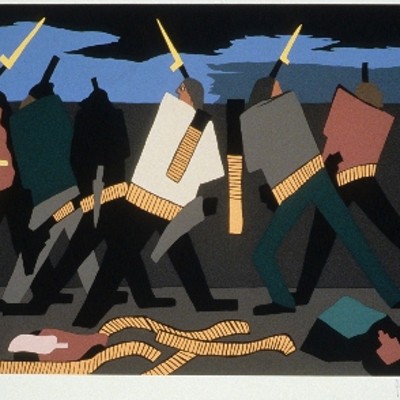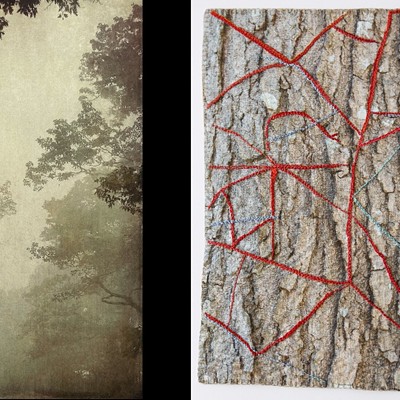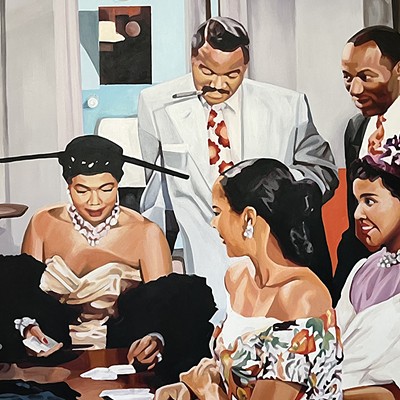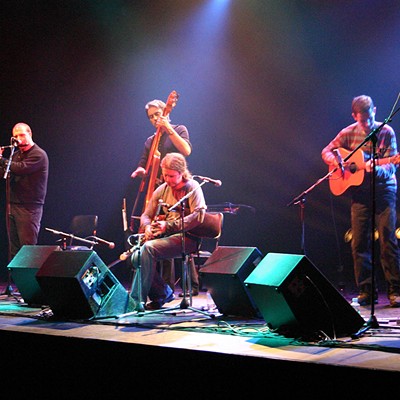During the famously hot Philadelphia summer of 1776, Thomas Jefferson had more on this mind than the birth of a new nation.
His mother, Jane, had died in Virginia on March 31. Her son was so distraught that he suffered a debilitating migraine for six weeks, delaying his trip to the Continental Congress until May.
The death of his mother was not the only thing distracting Jefferson from writing the Declaration of Independence. His little daughter Jane had died in September. And now his beloved wife, Martha Wayles Jefferson, pregnant again, was in danger of losing her life.
As late as June 30, a frantic Jefferson begged to be replaced as a delegate so he could rush to her side. He learned only later that Martha had miscarried days before he and his colleagues signed the Declaration on July 4.
The miscarriage saved Martha's life, if only temporarily. After a final disastrous pregnancy, she would die eight years later. At her death in 1782, Jefferson was inconsolable.
"I ever thought him to rank domestic happiness in the first class of the chief good," his worried friend Edmund Randolph wrote in a letter, "but scarcely supposed that his grief would be so violent ... ."
In her engrossing book The Women Jefferson Loved, historian Virginia Scharff, a University of New Mexico professor who earned her doctorate at the UA, argues that Jefferson's mostimportant ideas were inspired by his passionate love for the women in his life.
"His love for those closest to him, and the sacred bonds of affection, inspired his immortal embrace of life, liberty and the pursuit of happiness," Scharff writes. His views on private life, including the "domestic tranquility" enshrined in the preamble to the Constitution, helped shape the American nation.
"No wonder," Scharff adds, "the American public has been fascinated with his private life."
That private life, of course, was entwined with his late wife's half-sister, her slave Sally Hemings. Scharff briskly dismisses centuries of denial about Jefferson's and Heming's sexual liaison. Contemporary historians, abetted by DNA evidence, agree that their union yielded six pregnancies and four children who lived to adulthood. Jefferson duly fulfilled his promise to Hemings to free their children when they came of age.
But The Women Jefferson Loved is not only, or even mostly, about the third president's convoluted sexual relationships. It is a monumental work of women's history, detailing the lives of four generations of related women, from Jefferson's immigrant English mother to his precocious granddaughters to his biracial mistress and children. Four years in the making, the book makes use of family letters, plantation chronicles, account books, the findings of archaeological excavations at Monticello and a host of other sources.
At home, Jefferson lived in a female world. His father's early death left him the patriarch and protector of his mother and six sisters; later, he had the charge of his two motherless daughters from Martha. Among his many grandchildren, girls prevailed.
These women may have been aristocrats of a sort—Martha Jefferson was an especially skilled musician who sang and played "pianoforte" to her husband's violin—but they knew their way around a pigsty. They supervised the slaughter of hogs, grew food, gardened and housed frequent visitors.
The large plantation households they managed depended upon the unpaid labor of enslaved human beings. Jefferson's contradictory views on slavery are well-known. The great champion of liberty hated slavery but owned many slaves. Likewise, he prized domestic tranquility, but believed that a happy home depended on the submission of the wife and the benevolence of the patriarch.
Jefferson doted on his female descendants, but he was not always their wise protector. He was profligate with money and indulged in luxuries he couldn't afford. Following his death—50 years after he signed the Declaration of Independence—his home at Monticello had to be sold. His devoted daughter Patsy and her grown daughters were left penniless and homeless.
Scharff has written four entertaining mystery novels, about a professor who doubles as a detective. This written work of scholarship is equally well-written; it reads almost like a novel. Its characters are that complex; its story is that fascinating; and its tale is so important to the history of America.











